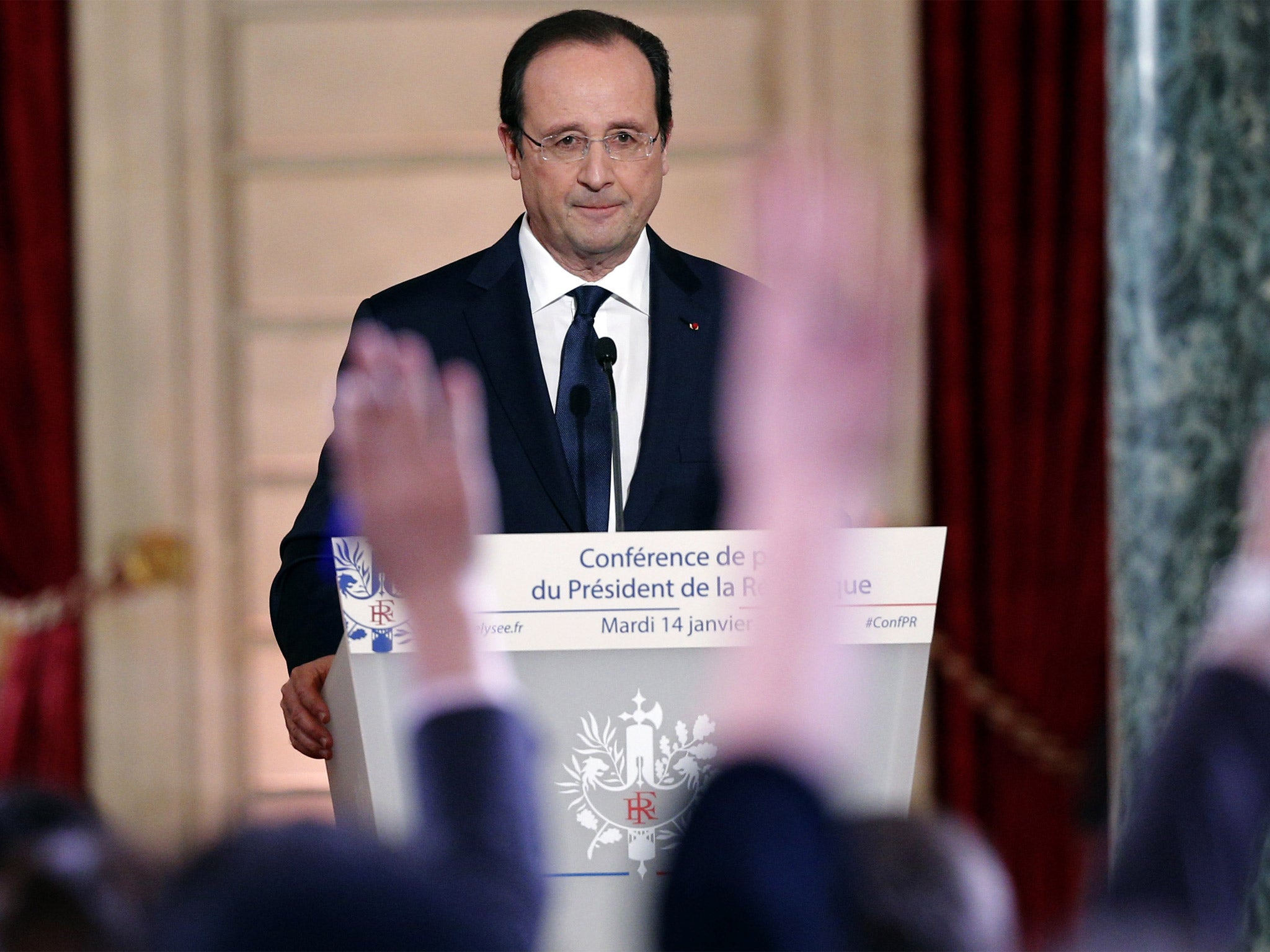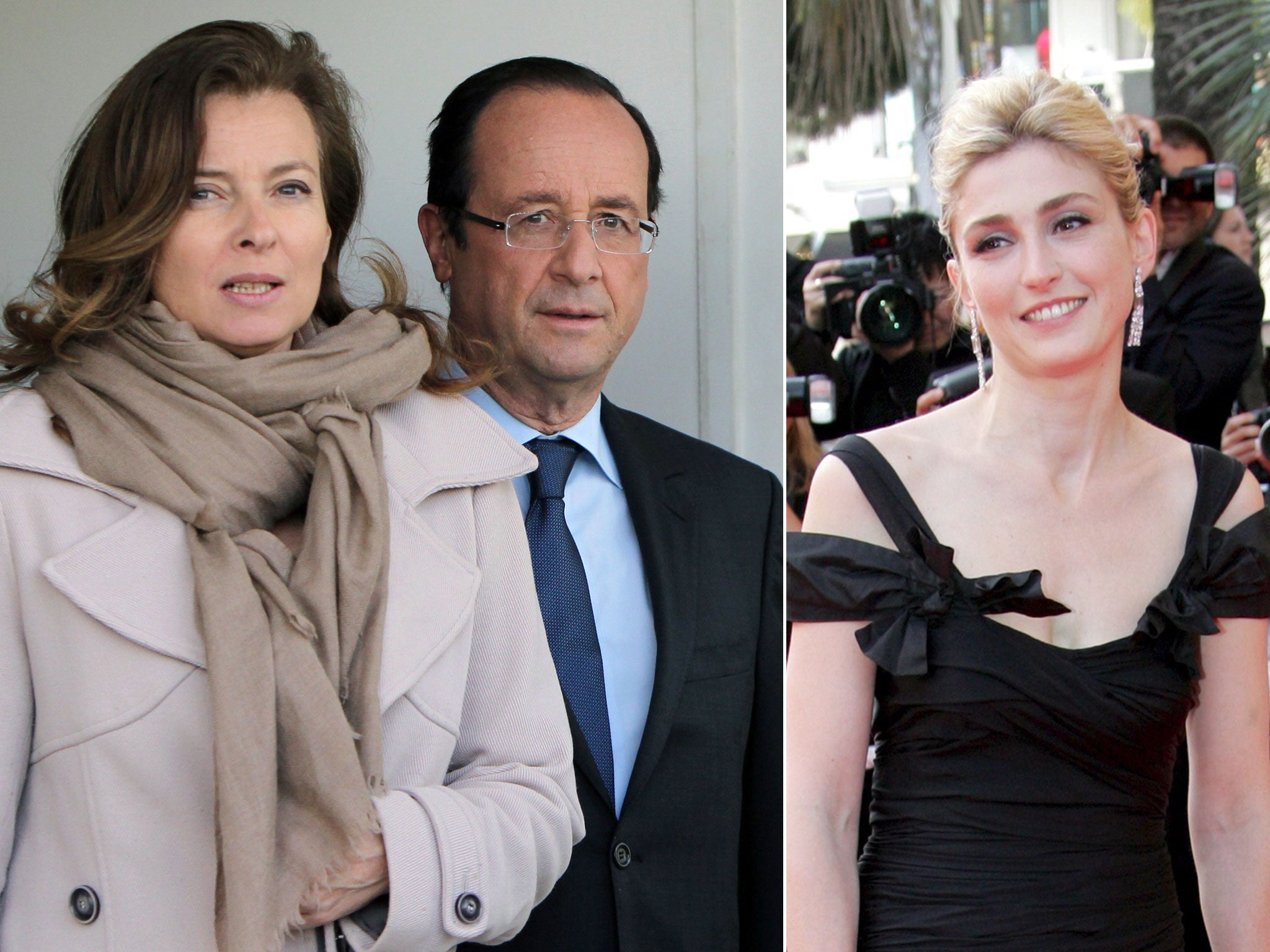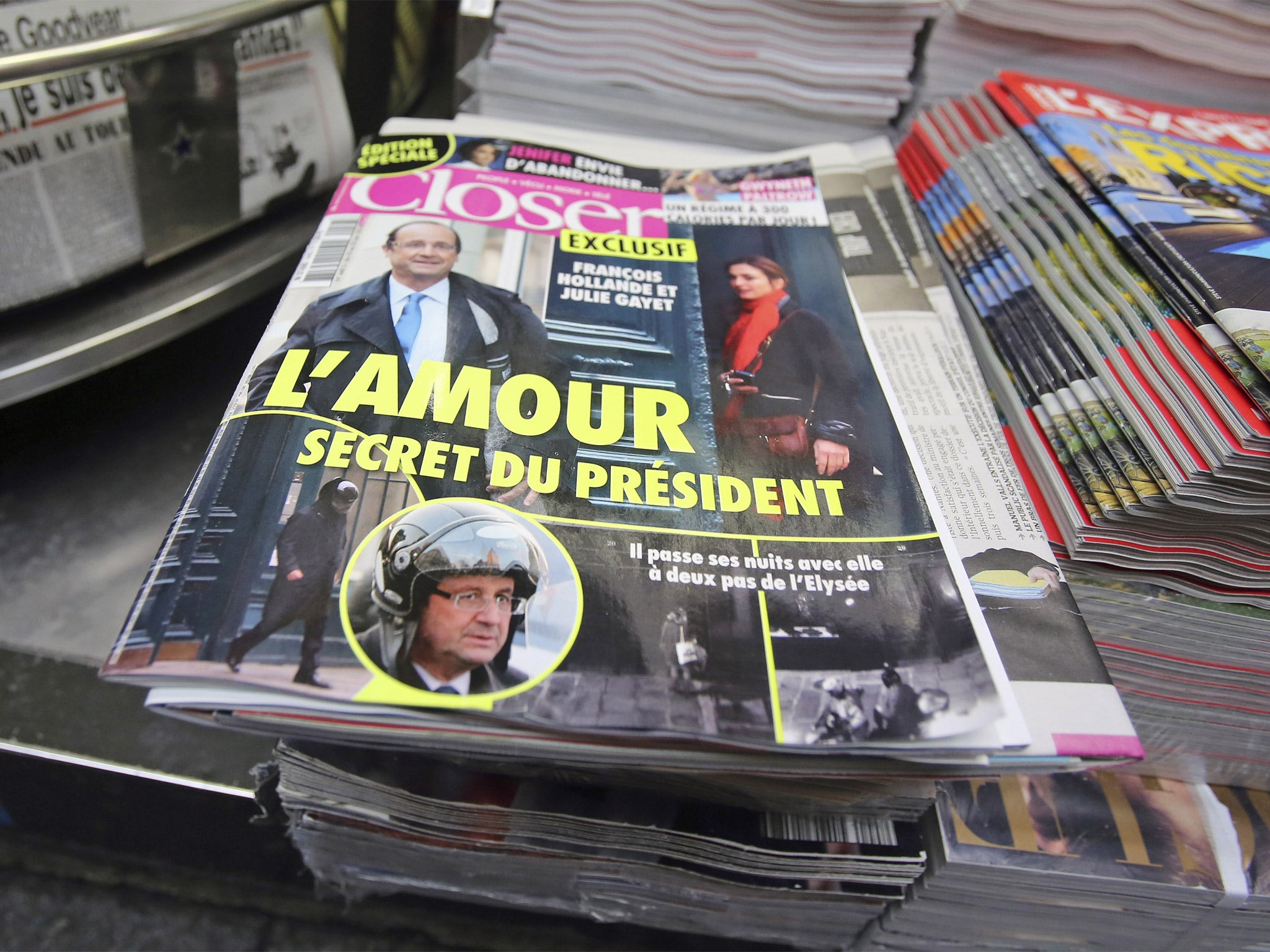French President François Hollande rebuffs media on alleged affair with Julie Gayet: 'These are painful moments, but private matters should be dealt with privately'
This being France, the President escaped close inspection of his private life at a long-awaited press conference. Instead, he talked about his plan to slash state spending. John Lichfield reports from the Elysee Palace

Two François Hollandes appeared before the world’s press today. One of them, the statesman and would-be saviour of France, refused to comment on the nocturnal escapades of the private man.
He was allowed to get away with it, more or less, by the 600 journalists packed into the glittering Chambre de Fêtes of the Elysee Palace. It is difficult to imagine the leader of any other democratic country escaping so lightly.
President Hollande admitted to suffering “pain” in his private life, but he refused to comment on reports that he is having an affair with a 41-year-old actress, Julie Gayet. He declined to say whether his official companion Valérie Trierweiler should still be considered France’s First Lady. He said that a statement would be made before 11 February when the French first couple are expected to visit the Obamas at the White House.
“Everyone in his private life can go through ordeals,” President Hollande said. “That is what is happening to us.
“These are painful moments. But I have a principle that private matters are dealt with in private. This is neither the place nor the time to do so.”
Asked about the health of Ms Trierweiler, 49, who is in hospital recovering from a “severe case of the blues”, Mr Hollande said curtly: “She is resting. I have nothing else to say.”
So much for the private man. The other Hollande – the Socialist statesman and would-be saviour of France – was in more loquacious form. He spent most of a two-and-a-half hour press conference explaining a sharp lurch in his economic policy towards a more market-driven, supply-side approach.
Over the next three years, a whole €30bn section of the French welfare state – family policy – will be cut or funded in a different way, he said. This would substantially ease the payroll taxes, or social charges, which weigh heavily on the cost of labour in France.
Abuses and excesses in the welfare state would be attacked. In return, employers must commit to creating tens of thousands of new jobs.
There would be a drive to cut the sprawling French state apparatus, examining all policies anew and saving an extra €50bn (on top of €15bn in savings this year). Entire areas of local government could be merged or abolished.
Here, too, Mr Hollande played the tight-rope walker. He said that these proposals were not a “U-turn” or a new departure, just an “acceleration” or “deepening” of what he has done in the last 20 months. Two minutes later he boasted that his proposed “responsibility pact” was the “most radical social compromise demanded of the French people for many decades”.

The second statement is nearer the truth. Although Mr Hollande was light on detail, the thrust of his proposals is revolutionary in French terms. He said that by cutting the state, he wanted to create a “virtuous circle” of growth and confidence.
Mr Hollande did take a couple of other questions on “l’affaire Gayet” without confirming or denying that the man pictured in a motorcycle helmet leaving her flat on 31 December was indeed him. He would not sue Closer magazine for publishing the images, he said, though his “indignation was total” at the breach of his right to privacy.
Yes, he agreed the legal status of the French First Lady – at present she has none – should be made clear. Mr Hollande promised “transparency” on the subject
Mr Hollande was elected in May 2012 as Mr Normal; the safe-pair-of-hands; the man who would not scare the horses; the anti-Sarko; the antidote to President Moi. He found himself fending off questions about nocturnal motorcycle escapades and a distraught, unmarried partner. One journalist complained that potentially hostile questioners were being by-passed.
Can Mr Hollande’s presidency recover? His popularity had already fallen to depths not previously plumbed by presidents of the Fifth Republic. An opinion poll – taken in the two days after Closer magazine revealed Mr Hollande’s affair – showed a slight upturn in the number of French people who approve of the President.
According to the Ipsos poll for Le Point magazine, Mr Hollande is now liked by 24 per cent of voters, compared to 23 per cent in December. At that rate another 26 escapades with actresses would put Mr Hollande back in the electoral black.

According to one interpretation of Mr Hollande’s hand-brake turn on economic policy, he knows that he has already blown his chances of re-election in 2017. He is engaged in a kamikaze reform policy, like Chancellor Gerhard Schröder in Germany a decade ago.
Mr Hollande has always been a social democrat. His party remains largely unreconstructed. He waved red flags (attacking Big Finance and promising a 75 per cent tax on the super-rich) in order to win election. In power, he has, until now, followed a shuffling course, neither old fashioned statist tax-and-spender nor full-blooded reformer.
To succeed even in kamikaze reforms Mr Hollande will need respect and authority. Both have been diminished by the image of a furtive president leaving his girlfriend’s flat in a motorcycle helmet.
Join our commenting forum
Join thought-provoking conversations, follow other Independent readers and see their replies
Comments
Bookmark popover
Removed from bookmarks